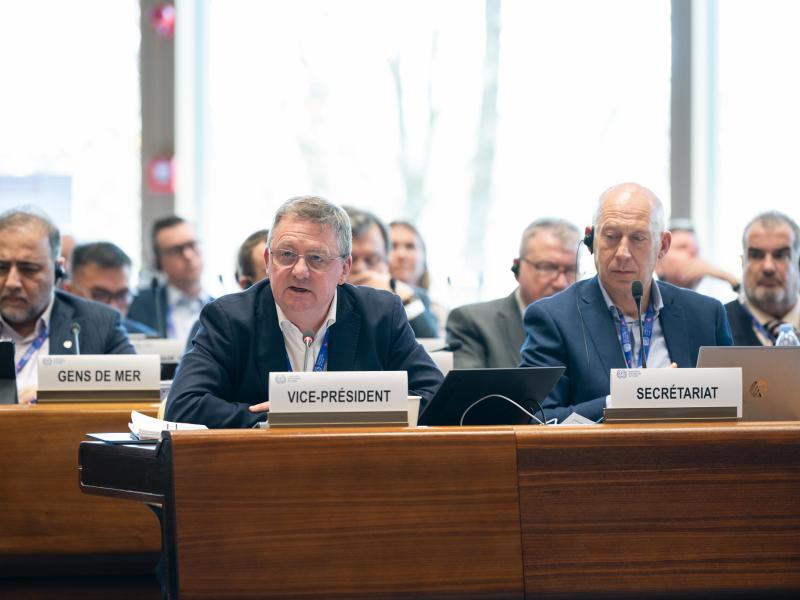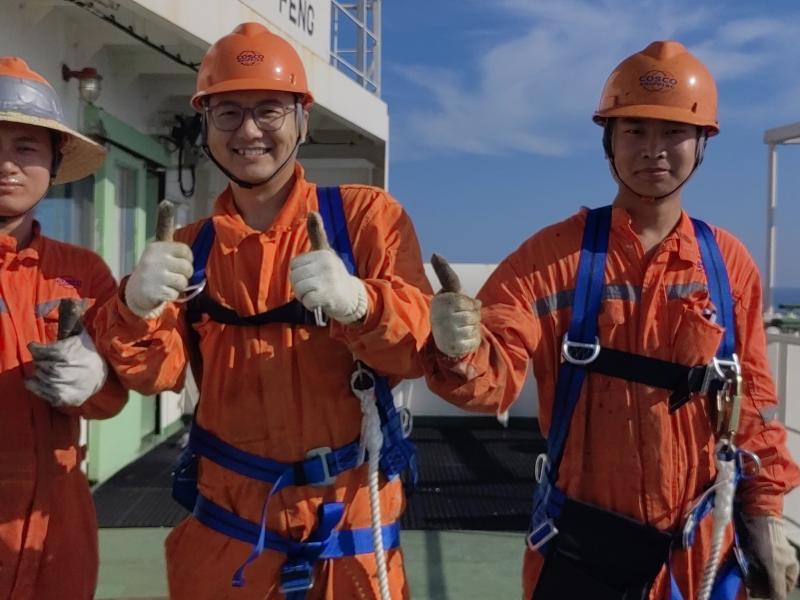In-depth investigation and ITF cases reveal that the MSC fails to ensure safe working conditions for fishers on certified vessels – despite claims of being free from forced labour.
The Marine Stewardship Council (MSC) label is failing to ensure fair and safe working conditions for fishers on certified vessels, research backed up by International Transport Workers’ Federation (ITF) Inspectorate cases reveals.
In-depth research published today – Tuesday – undertaken by Dr Katrina Nakamura, of the Sustainability Incubator, demonstrates that a number of MSC-certified tuna fishing vessels – some of which are also under investigation by the ITF’s inspectorate – are reported to have been implicated in a range of labour rights abuses.
As such, the MSC certification, often perceived as a guarantee of ethical labour standards, is failing to effectively protect fishers.
ITF Fisheries Expert, Chris Williams, said: “If the MSC is to retain any credibility as a label that consumers can trust, it must take immediate and decisive action to address the glaring gaps on human and labour rights in its certification process – including naming the employers of vessels involved in labour abuse cases.
“As it stands, many people all around the USA, Europe and Japan are buying MSC-labelled tuna that they believe is ethically sourced and produced. Little do they know that forced labour is also on the menu.”
The analysis of the current status of 3,327 listed tuna vessels participating in the MSC program reveals that several vessels, including Win Far 636, Zhong Da 2 and Hangton 115, are implicated in severe labour abuses, ranging from forced labour to untreated workplace injuries.
Key research findings include:
- Win Far 636 (Taiwan): Under investigation for the death of an observer who reported harassment and feared for his life.
- Zhong Da 2 and Hangton 115 (Fiji): Greenpeace and the Indonesia Migrant Workers Union identified forced labour onboard.
- Montecelo (El Salvador) and Dolores 873 (Philippines): Cited for failing to pay workers’ wages and untreated workplace injuries leading to disability.
- USA vessels: Charlotte M, Svetlana M, Natalia Victoria, Dayna S and Viki K reported for unpaid workers’ wages and human trafficking by the ITF.
The ITF calls on the MSC to urgently reform its certification process and refrain from making claims about forced labour unless it can demonstrate stringent labour standards and transparent oversight mechanisms to ensure adherence. These must include:
- Mandatory and regular audits of working conditions on certified vessels.
- Transparent and public reporting mechanisms for labour abuses.
- Swift action against employers and producers involved in exploitation and abuse of workers, including the suspension or revocation of certifications pending resolution of allegations.
The MSC must collaborate with trade unions, human and labour rights organisations and advocacy groups to develop a holistic approach to sustainable fishing that integrates human rights considerations in a way that is transparent, verifiable, and meaningful for workers.
Increased public awareness and media scrutiny of the numerous voluntary initiatives in the seafood sector have revealed that many have been ineffective in protecting workers’ rights and addressing their welfare.
END
Notes
- According to its own data available here, ‘MSC engaged catch’ in 2023 exceeded 15 million tonnes, spanning 674 MSC program fisheries in 66 countries. The USA, Europe and Japan are key markets for MSC tuna.
- The full analysis by Dr Katrina Nakamura is available here: https://www.nature.com/articles/s44183-024-00074-6
- For more information on the Sustainability Incubator, visit here.
- For more information on the ITF Inspectorate, visit here.
- Examples of failed voluntary initiatives in the seafood sector include the ‘Fairness, Integrity, Safety and Health (FISH) Standard for Crew’. See here for an analysis of its failings and recommendations for change.



